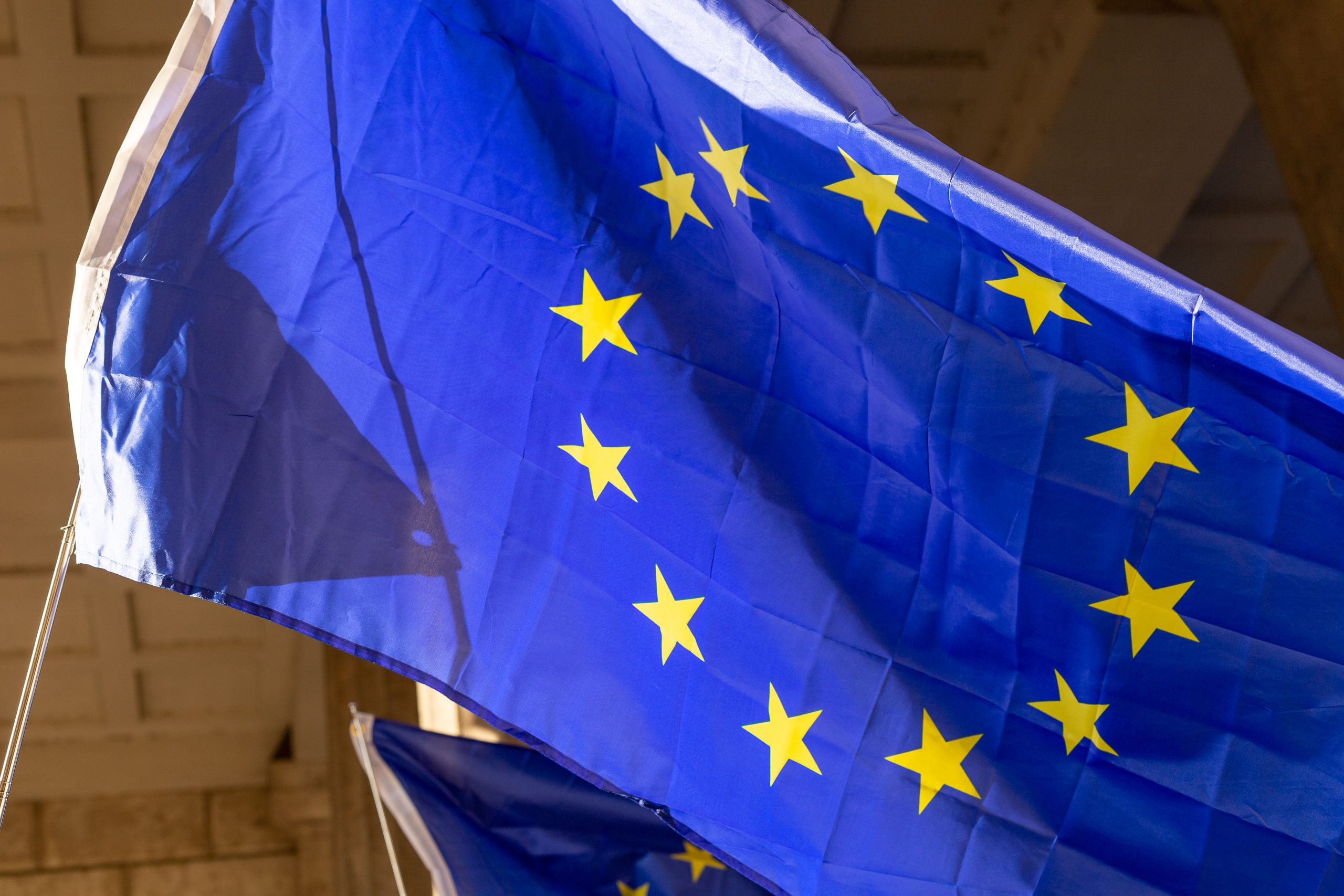Online trade is growing and growing. Currently, online retail sales are increasing by 22 per cent annually. EU companies now generate around one fifth of their total turnover online. The Common European Economic Area offers consumers a wide range of cross-border services without high additional costs. And they regularly take advantage of it.
According to Statista, cross-border online trade in Europe turned over around €171 billion. Forecasts for 2022 predict further growth to 220 billion euros.
International growth also holds potential for companies. In addition to turnover, the customer base also grows with expansion — but what is there to consider when expanding? We list 7 things you should keep in mind for international growth in the EU area.
Table of contents:
- The Geoblocking Regulation
- Breaking the language barriers
- The sales tax
- The intra-trade statistics
- Die Besteuerung im Warenverkehr | B2B vs. B2C
- The return of goods regulations
- Finding the right service provider for international logistics
The Geoblocking Regulation
What is geoblocking?
Geoblocking is the practice of identifying the location of online customers by IP address and denying them certain services or even access to the website. This can mean, for example, the exclusion of payment methods or the restriction of shipping and billing addresses. Especially customers from smaller EU countries, such as Malta or Luxembourg, are affected by this.
What does the Geoblocking Regulation provide for?
The Geoblocking Regulation came into force on 3 December 2018 and aims to stop the practice of geoblocking in the EU. The aim is to provide all customers with non-discriminatory access to goods and services, regardless of their location. The aim is to strengthen the digital single market, improve legal certainty for entrepreneurs, lower transaction costs and reduce the administrative burden for entrepreneurs.
What do you have to pay attention to?
If the violation of the Geoblocking Regulation is classified as an administrative offence, fines of up to € 300,000 can be imposed. Therefore, you should pay attention to the following points:
1. Enable access to your website
Disable any access blocks and automatic forwarding of customers without their prior consent.
2. Offer fair payment terms
As an online merchant, you can determine the means of payment yourself, but there must be no discrimination within the use of these means of payment. If credit transfers are accepted as a means of payment, it must also be possible to process them from abroad. The same applies to certain payment brands. If the Visa Card is accepted, it must also be possible to process it from abroad.
3. Check your terms and conditions
Customers must not be discriminated against on the basis of their place of residence, nationality, means of payment or delivery address. Check the contents of your Terms and Conditions in this respect.
Breaking the language barriers
To be successful abroad, your online shop should at least also be available in English. When expanding to a specific country, such as France, it may be worth adding more languages.
This not only helps to increase the appeal to your newly acquired clientele, but also prevents misunderstandings.
In addition to the product descriptions and your homepage, your legal texts should also be available in several languages. To avoid mistakes here, you can, for example, use the Legal texts from the International Traders Association.
The sales tax
What is turnover tax?
The sales tax is a consumption tax levied on all services and goods within the EU.
In principle, every company established in the EU-area is liable for sales tax. The exception is companies that make use of small business regulations. Under certain conditions, however, a sales tax number must additionally be applied in countries to or from which sales are made.
When is registration abroad necessary?
Registration abroad is required if your goods are stored in another EU country or if the delivery threshold for the mail order business of the destination country is exceeded. This delivery threshold only applies to cross-border shipments to end consumers within a calendar year. Since 1 July 2021, a uniform delivery threshold of 10,000 euros has applied to all deliveries within the EU. As a trader, you therefore pay the sales tax due in your own country up to this threshold. If the threshold is exceeded, the recipient is obliged to pay the sales tax in the destination country.
The intra-trade statistics
When is there an obligation to report?
Every company that is registered for VAT in the EU and engages in cross-border trade in goods with other EU member states is subject to a reporting obligation. The content of the so-called "Instratmeldung" depends on the value of the goods.
What are the intra-trade statistics?
The intra-trade statistics record the trade in goods between the member states of the EU. It serves to collect data on the cross-border movement of goods. This is done through the reporting of the companies obliged to provide information.
Companies whose shipments to other EU countries did not exceed the value of € 500,000 and whose receipts from other EU countries did not exceed the value of € 800,000 in the previous year are exempt from the reporting obligation.
Taxation in the trade of goods
B2B vs. B2C
The movement of goods within the EU is basically free. The exception is taxable goods such as alcohol, coffee or tobacco. However, different conditions apply to the dispatch of goods within the EU for business customers (B2B or business-to-business) and private customers (B2C or business-to-customer).
Business-to-Business
From business to business, the shipment of goods can be made untaxed if it is an intra-community supply This must be included in the sales tax return and quarterly in the recapitulative statement. Otherwise, the tax arises in the destination country. The company in the destination country must pay the sales tax itself accordingly.
Business-to-Customer
When goods are shipped from companies to end consumers (B2C), they are taxed in the country of origin as long as the delivery threshold is not exceeded. If the delivery threshold is exceeded, the goods are taxed in the destination country. In this case, the supplier must charge the customers the sales tax of the destination country.
The return of goods regulations
Under EU law, if goods are defective or if their function or appearance is not as advertised, you as a trader are obliged to replace them, repair them, reduce the price or refund the purchase price in full. The warranty for all goods extends to two years. In addition, products purchased online can be revoked without reason within 14 days. As a trader, you also have 14 days to refund the cost of the product including shipping costs.
Finding the right service provider for international logistics
The expansion of your online shop entails a wide range of tasks. It is important to find the right partner for your needs and to be able to react flexibly to the demands of your customers and the varying order quantities.
Working with a professional logistics service provider can help you optimise your processes and build your network. With a network of over 1,000 logistics centres, Warehousing1 has a pan-European presence and therefore always has the ideal location for you.
When expanding your shop, it's easy to lose track of everything. With Warehousing1 you can book, manage, flexibly expand and efficiently optimise fulfilment and warehouse logistics digitally via a central platform.
Talk to one of our logistics experts now.



